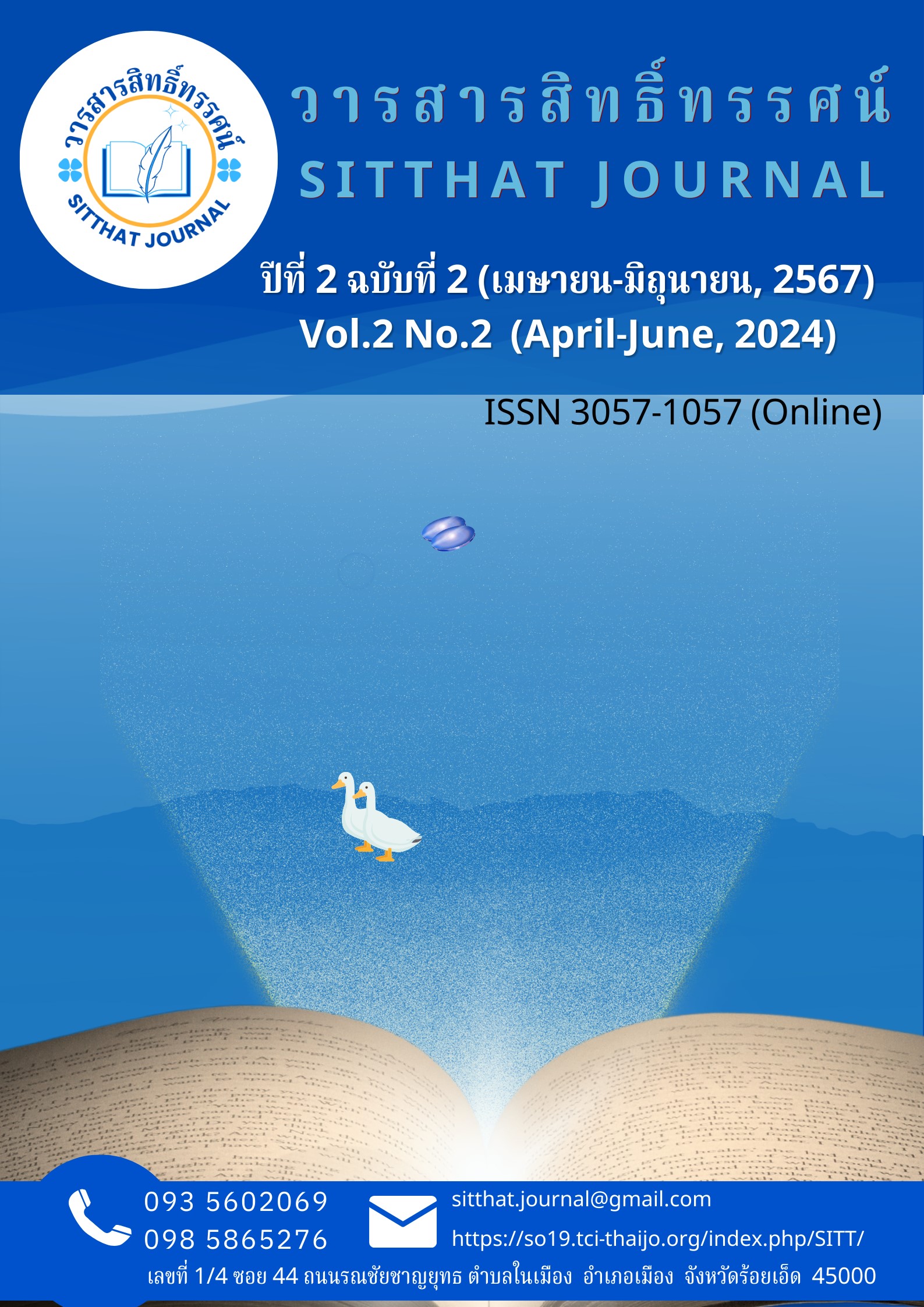THE MANAGEMENT BASED ON BUDDHIST PRINCIPLES TO ENHANCE THE CAPACITY OF MORAL EDUCATION MONKS IN SCHOOLS
Main Article Content
Abstract
The management based on Buddhist principles to enhance the capacity of moral education monks in schools is an approach that combines Buddhist teachings with educational administration principles. This approach aligns with the strategy of developing the institution, where Buddhism is elevated and integrated with all forms of human knowledge, ensuring that Buddhist wisdom is present alongside all disciplines. The purpose of this article is to study the management approach based on Buddhist principles to enhance the capacity of moral education monks in schools. The study found that the Buddhist principles in Buddhism consist of moral and ethical teachings, focusing on understanding the truths of the world and life. In the current context, particularly in management, these Buddhist principles play a significant role in fostering peaceful coexistence, sustainable development, and organizational success. Moral education monks in schools adhere to the Buddhist principles that society recognizes to enhance their capacity, with key management principles based on Buddhism being. 1) Principle of Dhamma Governance. Having a standard principle and steadfastly following it. 2) Principle of Brahmavihara: Practicing kindness, compassion, sympathetic joy, and equanimity. 3) Avoiding Bias or Prejudice. 4)Avoiding harmful practices, such as refraining from associating with evil companions. These are integrated with the principles for managing oneself, others, and work, known as the Seven Sappurisa Dhamma, which are the qualities that make a person virtuous, possessing right view, knowledge, and wisdom that aligns with reality. To enhance the capacity of moral education monks in schools, the focus areas are: 1) Content and Curriculum 2) Teaching and Learning Management 3) Production and Use of Educational Media 4) Assessment and Evaluation 5) Classroom Research 6) Characteristics and Attitudes. These areas aim to improve the effectiveness of moral education for children and youth provided by moral education monks in schools.
Article Details

This work is licensed under a Creative Commons Attribution-NonCommercial-NoDerivatives 4.0 International License.
บทความนี้
References
ชนะพงษ์ กล้ากสิกิจ. (2562). การประยุกต์หลักสัปปุริสธรรม 7 กับการบริหารงานสมัยใหม. หลักสูตร
ปรัชญาดุษฎีบัณฑิต, สาขาวิชารัฐประศาสนศาสตร์ คณะสังคมศาสตร์, มหาวิทยาลัยมหาจุฬาลง
กรณราชวิทยาลัย, วารสารมนุษยศาสตร์และสังคมศาสตร์ มหาวิทยาลัยราชภัฏสวนสุนันทา, 2(1),99-110.
บรรจง ลาวะลี. (2562). คุณธรรมสําหรับผู้บริหารในศตวรรษที่ 21. มหาวิทยาลัยมหามกุฏราชวิทยาลัยวิทยาเขตร้อยเอ็ด, วารสารพุทธปรัชญาวิวัฒน์, 3(1), 51-65.
พระครูสมุห์ประมวล ปภสฺสโร (นาคะเวช). (2562). การพัฒนาศักยภาพพระสอนศีลธรรมในโรงเรียนอำเภอบางคนที จังหวัดสมุทรสงคราม. สารนิพนธ์วิชาการจัดการเชิงพุทธ, มหาวิทยาลัยมหาจุฬาลงกรณราชวิทยาลัย.
พระธรรมโกศาจารย์ (ประยูร ธมฺมจิตโต). (2549). พุทธวิธีบริหาร. กรุงเทพฯ : โรงพิมพ์มหาจุฬาลงกรณราชวิทยาลัย.
พระมหาเกรียงศักดิ์ อินทปญฺโญ, ดร., พระมหาจีรวัฒน์กนฺตวณฺโณ (กันจู),ดร., ดร.ถวิล คำโสภา. (2562). การพัฒนาศักยภาพของพระสอนศีลธรรมในโรงเรียนในจังหวัดลำปาง. วารสารนิติสาสตร์และสังคมท้องถิ่น, 3(1), 96-117.
พระมหาฉัตรชัย อภิชโย, จักรี ศรีจารุเมธีญาณ. (2564). การบริหารงานตามแนวหลักพุทธธรรม.วารสารวิชาการรัตนบุศย์, 3(3), 56-65.
มหาวิทยาลัยมหาจุฬาลงกรณราชวิทยาลัย วิทยาเขตขอนแก่น. (2553). คู่มือปฏิบัติงานโครงการพระสอนศีลธรรมในโรงเรียน. ขอนแก่น: โรงพิมพ์แอนนาออฟเซต ขอนแก่น.
สำนักงานพระสอนศีลธรรม มหาวิทยาลัยมหาจุฬาลงกรณราชวิทยาลัย. (2560). คู่มือพระสอนศีลธรรมปีงบประมาณ 2560. นนทบุรี: ห้างหุ้นส่วนจ ากัด เชน ปริ้นติ้ง.
อานนท์ เมธีวรฉัตร. (2562). รูปแบบการเสริมสร้างสมรรถนะด้านการสอนของพระสอนศีลธรรมในโรงเรียนในเขตการปกครองคณะสงฆ์ ภาค 4. มหาวิทยาลัยมหาจุฬาลงกรณราชวิทยาลัย วิทยาเขตนครสวรรค์, บัณฑิตศึกษาปริทรรศน์ วิทยาลัยสงฆ์นครสวรรค์, 7(2), 168-180.


